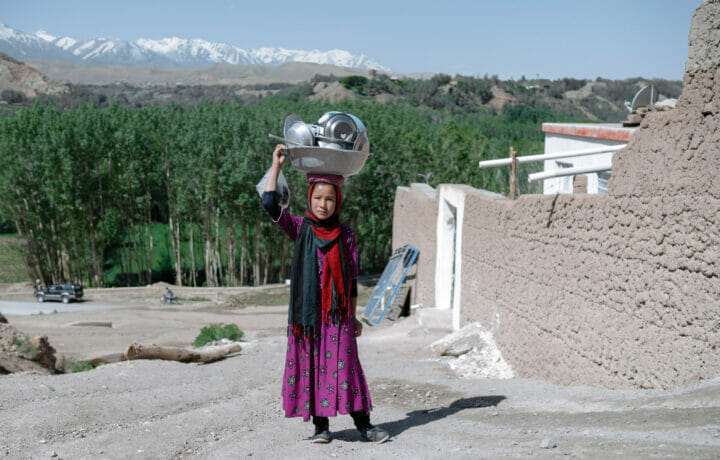“After buying a book by Elif Shafak, I returned home…I realized how much I love being in the library…seeing and reading books. The name and memory of the Talban cause my mind to panic. But I have to get up and do something.” -Marzia
Marzia was just 16 years old when she penned these words in her diary, – just eight days before her death under the Taliban-Haqqani terror regime. She died on September 30 beside nearly 60 other young Hazara students, mostly girls, at an education center in the Dasht-e-Barchi district of Kabul. The number of dead continues to climb as the wounded succumb to their injuries.
In May 2021 a terrorist attack in the Hazara area of Kabul killed nearly 100 people. It was clear to me at the time that the world seemed to be able to ignore such heinous crimes against a persecuted minority; in the Western news and cities, there was little more than a shrug in response.
After this attack, so far, the responses have been basically another shrug of the shoulders. “UNICEF is appalled” and “deeply saddened,” the UN Security Council “condemned the attack in the strongest of terms,” and the UN lead agency in Afghanistan “condemns the outrage” and “extends deep condolences.” Afghans, especially Hazaras, and human rights activists around the world are demanding more be done. The Hazara people have been specifically targeted by terrorists, tyrants, and militias for decades.
Report to the UNited Nations
In his September 2022 report to the UN, Richard Bennett the UN Human Rights Rapporteur on Afghanistan, noted
“Hazara communities have been subjected to multiple forms of discrimination, negatively affecting their economic, social, cultural and human rights.
“There are reports of arbitrary arrests, torture and other ill-treatment, summary executions and enforced disappearances,” the Special Rapporteur insisted. “In addition, an increase in inflammatory speech is being reported, both online and in some mosques during Friday prayers, including calling for Hazaras to be killed.”
The top rights expert, who works in an independent capacity, also explained how Afghanistan’s de facto rulers had appointed Pashtuns “to senior positions in government structures in Hazara dominated provinces”.
This had led to forcible evictions of Hazaras and imposed religious taxation contrary to Shia principles, Mr. Bennett said.”
Can Social Media Move the Dial?
In response to this report, the UN and key nations have done absolutely nothing to take action to prevent the next terrorist attack on Hazaras.
Human rights activists in Afghanistan have taken to the streets and to social media to call on the world to take action and end the likely-genocidal attacks on the Hazara people. #stopHazaraGenocide has been trending in the region and around the globe. It quickly got over a million posts and has now surpassed three million. This rapid response is far greater than any previous human rights calls to action have gotten. The effort is so effective that terrorists and their supporters have created numerous misspelled duplicate hashtags to try to dilute the power of the online protest. This same tactic was used to disturb the #sanctionPakistan movement.
It remains to be seen if the UN or any nation will start the necessary activities to bring security and safety to the most targeted locations. Short of an international peacekeeping force taking up security positions around the Hazara areas, the Afghan people will continue to watch as their fellow citizens are murdered for trying to get an education or give birth in a hospital.
Genocide Definition
The 1948 United Nations Convention on the Prevention and Punishment of the Crime of Genocide defines genocide as “any of the following acts committed with intent to destroy, in whole or in part, a national, ethnical, racial or religious group, as such: killing members of the group; causing serious bodily or mental harm to members of the group; deliberately inflicting on the group conditions of life, calculated to bring about its physical destruction in whole or in part; imposing measures intended to prevent births within the group; [and] forcibly transferring children of the group to another group.”
At a minimum, the UN could follow the advice of many humanitarians and put a large UN Genocide Investigation team on the ground to start collecting details and building a report to the UN Human Rights Council on the possible existence of a genocide in Afghanistan. To the long-time observers, the likelihood of this constituting a genocide is highly likely.




